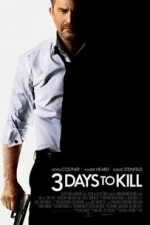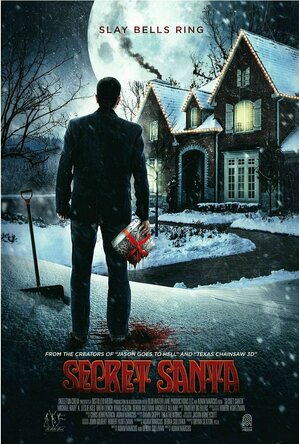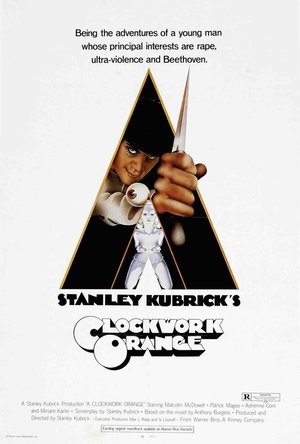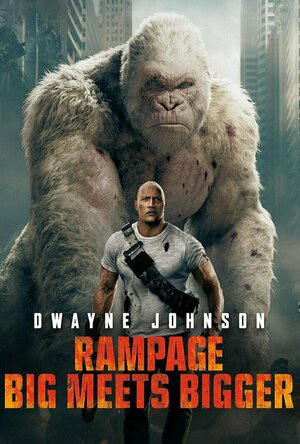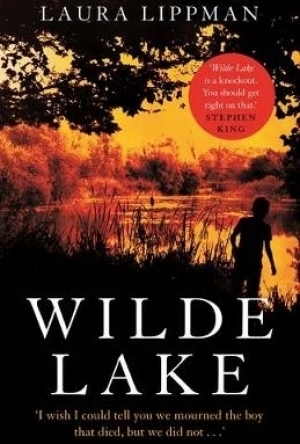Search
Search results
Gareth von Kallenbach (980 KP) rated 3 Days To Kill (2014) in Movies
Jun 19, 2019
Ethan, (Kevin Costner) is a man with some serious issues but oddly enough, his life as a spy and heavy hitter is not one of them. Ethan has a reputation for getting the job done and he is brutally efficient in his craft.
When a mission to stop a government purchasing a Dirty Bomb from a mysterious figure known as “The Wolf” goes awry, Ethan finds his life turned upside down when he learns he is on borrowed time due to a previously undiagnosed illness.
Ethan returns to Paris in an attempt to reconnect with his daughter, Zoe (Haillee Steinfeld), and her mother, Ethan comes home to learn that a group of squatters have taken up residence in his apartment, and under French law, nothing can be done to remove them until the spring arrives.
Since Ethan has been gone for five years, his family is less than thrilled to see him as it has been easier to live their lives without him. Undaunted, Ethan continues to try to make up for lost time.
Complications arise when a top level agent named Vivi (Amber Heard), arrives in Paris and attempts to recruit Ethan to identify and eliminate The Wolf when it is learned that there is a window to remove him over the next 72 hours.
Wanting no part of his past life, Ethan is dragged back into the fold by the offer of cash for his daughter and an experimental drug that will extend his life.
Ethan now must walk a deadly path between dangerous people, his former employers, and the largest danger of all, his teenage daughter and her mother.
Based on a story by Luc Besson who also had a hand in writing the script, “3 Days to Kill” is a fresh and fun film despite its flaws. Director Mc G does a good job of keeping the emphasis on Ethan and his family as that is the core of the story. There is action aplenty and some of it does play out in typical Hollywood fashion, but there is a charm to the story that one does normally associate with this type of film.
Costner does a good job of playing Ethan as a world weary man who is simply trying to do the right thing with what time he has left. Scenes where he has to deviate from his deadly profession to deal with teen trauma and domestic issues are funny as they come across as very natural. Ethan is so frustrated by the duality of his life; he even seeks parenting advice from suspects he is interrogating.
While parts of the film may drag out and some of the plot points stretch credibility, the winning cast makes the film worth seeing and I for one was pleasantly surprised by the film as you may be if you are willing to look past some of the flaws.
http://sknr.net/2014/02/20/3-days-to-kill/
When a mission to stop a government purchasing a Dirty Bomb from a mysterious figure known as “The Wolf” goes awry, Ethan finds his life turned upside down when he learns he is on borrowed time due to a previously undiagnosed illness.
Ethan returns to Paris in an attempt to reconnect with his daughter, Zoe (Haillee Steinfeld), and her mother, Ethan comes home to learn that a group of squatters have taken up residence in his apartment, and under French law, nothing can be done to remove them until the spring arrives.
Since Ethan has been gone for five years, his family is less than thrilled to see him as it has been easier to live their lives without him. Undaunted, Ethan continues to try to make up for lost time.
Complications arise when a top level agent named Vivi (Amber Heard), arrives in Paris and attempts to recruit Ethan to identify and eliminate The Wolf when it is learned that there is a window to remove him over the next 72 hours.
Wanting no part of his past life, Ethan is dragged back into the fold by the offer of cash for his daughter and an experimental drug that will extend his life.
Ethan now must walk a deadly path between dangerous people, his former employers, and the largest danger of all, his teenage daughter and her mother.
Based on a story by Luc Besson who also had a hand in writing the script, “3 Days to Kill” is a fresh and fun film despite its flaws. Director Mc G does a good job of keeping the emphasis on Ethan and his family as that is the core of the story. There is action aplenty and some of it does play out in typical Hollywood fashion, but there is a charm to the story that one does normally associate with this type of film.
Costner does a good job of playing Ethan as a world weary man who is simply trying to do the right thing with what time he has left. Scenes where he has to deviate from his deadly profession to deal with teen trauma and domestic issues are funny as they come across as very natural. Ethan is so frustrated by the duality of his life; he even seeks parenting advice from suspects he is interrogating.
While parts of the film may drag out and some of the plot points stretch credibility, the winning cast makes the film worth seeing and I for one was pleasantly surprised by the film as you may be if you are willing to look past some of the flaws.
http://sknr.net/2014/02/20/3-days-to-kill/
Emma @ The Movies (1786 KP) rated Secret Santa (2018) in Movies
Dec 8, 2019
As alternative Christmas films go this one is way out there and probably the most Christmassy of them all. We've got actual Christmas events which is more than some.
Christmases in the family are always an over the top affair, snowy location, enormous turkey, secret Santa gifts and competition. But where there should be fun and merriment there's always a little bit of resentment, bitterness and not so friendly jabs.
April has turned over a new leaf and this Christmas is meant to be a way to apologise for past wrongs and bring everyone back together for some much needed family bonding, what she doesn't know is that someone else has other ideas. The family doesn't need more pleasantries, it needs a bit of truth.
Secret Santa is just pure batshit crazy and takes dysfunctional family to another level, there's so much going on that you'll certainly never be bored watching it. We obviously have a lot of gratuitous violence and there's also some nudity and sex thanks to Jackson, his girlfriend, and a... well, I won't spoil that bit. These are all selling points, right!?
What kick starts the craziness is the punch being spiked with an experimental military-grade truth serum, the effects start with what appears just to be their normal family bitchiness but it soon progresses into something a lot more homicidal. I liked that they kept a bit of a mix, not everyone showed the same sort of rage and it really depended on their original demeanour. The most extreme was definitely Jackson, and Nathan Hedrick certainly gives a fantastic, if disturbing, performance in the role. But everyone really commits to their parts and that's the thing that stopped this film from sliding into a bad made-for-TV affair.
There are so many things I want to mention but I don't want to spoil the fun to be had from watching this, so I'll just say that something wacky and nuts happens approximately every two minutes.
The film is done in such a way that you really get pulled into the action of it all by being up close and personal, and throughout there's a real contrast between the good and the bad, even in the opening titles. We're also treated to some great musical choices throughout and the festive vibe shines through. Make sure you watch into the credits as there are some great little additions to the story in them.
If you've brought the DVD then you'll also have a "making of" featurette, you absolutely need to watch this. It's almost as long as the film but it was really interesting to watch. Finding out the background to some of these films really does help you have a different appreciation for them and listening to the story begin Secret Santa was a real bonus.
Originally posted on: https://emmaatthemovies.blogspot.com/2019/12/secret-santa-movie-dvd-review.html
Christmases in the family are always an over the top affair, snowy location, enormous turkey, secret Santa gifts and competition. But where there should be fun and merriment there's always a little bit of resentment, bitterness and not so friendly jabs.
April has turned over a new leaf and this Christmas is meant to be a way to apologise for past wrongs and bring everyone back together for some much needed family bonding, what she doesn't know is that someone else has other ideas. The family doesn't need more pleasantries, it needs a bit of truth.
Secret Santa is just pure batshit crazy and takes dysfunctional family to another level, there's so much going on that you'll certainly never be bored watching it. We obviously have a lot of gratuitous violence and there's also some nudity and sex thanks to Jackson, his girlfriend, and a... well, I won't spoil that bit. These are all selling points, right!?
What kick starts the craziness is the punch being spiked with an experimental military-grade truth serum, the effects start with what appears just to be their normal family bitchiness but it soon progresses into something a lot more homicidal. I liked that they kept a bit of a mix, not everyone showed the same sort of rage and it really depended on their original demeanour. The most extreme was definitely Jackson, and Nathan Hedrick certainly gives a fantastic, if disturbing, performance in the role. But everyone really commits to their parts and that's the thing that stopped this film from sliding into a bad made-for-TV affair.
There are so many things I want to mention but I don't want to spoil the fun to be had from watching this, so I'll just say that something wacky and nuts happens approximately every two minutes.
The film is done in such a way that you really get pulled into the action of it all by being up close and personal, and throughout there's a real contrast between the good and the bad, even in the opening titles. We're also treated to some great musical choices throughout and the festive vibe shines through. Make sure you watch into the credits as there are some great little additions to the story in them.
If you've brought the DVD then you'll also have a "making of" featurette, you absolutely need to watch this. It's almost as long as the film but it was really interesting to watch. Finding out the background to some of these films really does help you have a different appreciation for them and listening to the story begin Secret Santa was a real bonus.
Originally posted on: https://emmaatthemovies.blogspot.com/2019/12/secret-santa-movie-dvd-review.html
SA
Shadows Across the Moon: Outlaws, Freaks, Shamans and the Making of Ibiza Clubland
Helen Donlon and Richie Hawtin
Book
Once a fabled pirate garrison, the Balearic island of Ibiza has been colonised and continually...

Translating Statistics to Make Decisions: A Guide for the Non-Statistician
Book
Examine and solve the common misconceptions and fallacies that non-statisticians bring to their...
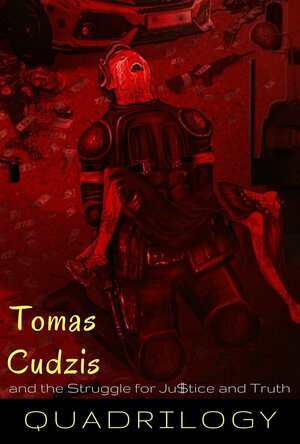
Tomas Cudzis and the Struggle for Justice and Truth: Quadrilogy
Book
Tomas’s sense of inferiority since his childhood has forced him to transform himself physically,...
thriller psychological thriller dark thriller
Chris Sawin (602 KP) rated A Clockwork Orange (1971) in Movies
Jun 15, 2019
Alex DeLarge (Malcolm McDowell) is your average eighteen year old boy...if by average, you mean he fully embraces the old ultraviolence and wanders the streets with his three droogs causing havoc and doing whatever he likes; skipping school, breaking and entering, rape, and assault is just another average day in Alex's life. However, when a planned rape turns into an "accidental" murder, things start to turn fowl for Alex. His droogs turn on him and he winds up being caught by the police. He is then taken to a correctional facility where he spends the next few years, puts on the front that he's fully embraced the bible and that he's now a changed man. But when word makes round of the experimental Ludovico treatment, Alex realizes his chance at freedom and jumps through the proper hoops to get out of the penitentiary he finds himself in and get into the experimental facility where he can be "cured."
Alex is promised that he'll be a free man within a fortnight. The treatment consists of a drug known as Serum 114 being injected into the patient before making them sit through short films such as a man being beaten to a pulp, a woman being the sexual victim of several men, and a Nazi concentration camp film set to the soundtrack of Beethoven's ninth symphony. Alex begins to feel sick during the films and the doctors insist that it's part of the cure. Alex's love for music and Beethoven in general become one of the adverse effects of the treatment as the ninth symphony has the same effect on Alex as the urge to beat or rape someone would. Alex soon comes to realize that you can never go home again and that being a free man isn't all it's cracked up to be, especially after a treatment such as this.
It took 37 years after its initial theatrical release and 24 years of being alive on this planet (the original viewing of this film was in 2008) to finally get around to seeing A Clockwork Orange. The film starts and it makes the viewer feel like they've missed something entirely that everyone else already knows about, but as the film unravels it snowballs into a unique vision of cinema. There are shades of Altered States in A Clockwork Orange, but A Clockwork Orange feels much more polarizing in its presentation in comparison. Stanley Kubrick tries to shine this spotlight of beauty onto the most heinous of actions as the film’s classical score becomes the soundtrack to ferocious and almost inhuman desires. This is Kubrick’s adaptation of the 1962 novel of the same name written by Anthony Burgess and it’s incredible how the film is able to remain captivating over a two hour period.
The film has a stunning restoration on the two-disc Blu-ray anniversary edition. Kubrick always had a brilliant eye when it came to perspective and camera placement; the majority of that could be contributed to Kubrick’s frequent collaborations with cinematographer John Alcott. The long hallway shots and close-ups on memorably haunting facial expressions are some of the most significant scenes in the film. A Clockwork Orange is loaded with vibrant colors that make every frame jump off the screen despite the film nearing half a century in age. This was the first film to take advantage of Dolby Digital surround sound, which contributes to the film sounding as good as it does.
Even with Stanley Kubrick as director, A Clockwork Orange wouldn’t be the same without Malcolm McDowell. McDowell fits the Alex DeLarge role as perfectly as Robert Downey Jr fits Tony Stark; these actors are these characters. The speeches McDowell gives in the film along with how traumatized he is after the treatment process are two of the biggest takeaways after viewing the film. This was one of McDowell’s first on-screen roles, which is surprising given how enthralling he is. You will never think of, “Singin’ in the Rain,” the same way again after viewing A Clockwork Orange.
A Clockwork Orange is a unique expedition into insanity no matter how you look at it. The dialogue is unusual and the characters are this fantastic blend of bizarre and diabolical, but the film is consistently engrossing and never seems to lag. Prior to 1986, the A Clockwork Orange novel was published in the US without its final chapter and that’s the version of the film Kubrick adapted. Anthony Burgess praised Kubrick’s version of the film despite this, which is more than what Stephen King did with Kubrick’s adaptation of The Shining. Every shot in A Clockwork Orange grabs your attention largely in part to how it’s presented or the colors that leap off the screen. The novel is written in a way that’s difficult to read and that often translates on-screen. Like most of Kubrick’s work, A Clockwork Orange is for a specific audience. It is perhaps what Malcolm McDowell is known best for and probably shouldn’t be recommended to just anyone since it would likely soar over a modern day moviegoer. This isn’t the type of film to have on in the background while you text or play games on your phone. Ultraviolence is something you have to embrace and give your undivided attention to.
This is viewed by some as one of the greatest sci-fi films ever by some, but it isn’t any less pretentious than the rest of Stanley Kubrick’s work. A Clockwork Orange is mesmerizing with a performance from Malcolm McDowell that leaves a long lasting impact, but its affinity to utilize difficult to decipher jargon, nonstop innuendo being slammed into your face, and overuse of animalistic violence shackles the film from being more appealing to a wider audience. From a personal standpoint, A Clockwork Orange is one of Kubrick's best but it's easy to understand why it wouldn't be for everyone.
Alex is promised that he'll be a free man within a fortnight. The treatment consists of a drug known as Serum 114 being injected into the patient before making them sit through short films such as a man being beaten to a pulp, a woman being the sexual victim of several men, and a Nazi concentration camp film set to the soundtrack of Beethoven's ninth symphony. Alex begins to feel sick during the films and the doctors insist that it's part of the cure. Alex's love for music and Beethoven in general become one of the adverse effects of the treatment as the ninth symphony has the same effect on Alex as the urge to beat or rape someone would. Alex soon comes to realize that you can never go home again and that being a free man isn't all it's cracked up to be, especially after a treatment such as this.
It took 37 years after its initial theatrical release and 24 years of being alive on this planet (the original viewing of this film was in 2008) to finally get around to seeing A Clockwork Orange. The film starts and it makes the viewer feel like they've missed something entirely that everyone else already knows about, but as the film unravels it snowballs into a unique vision of cinema. There are shades of Altered States in A Clockwork Orange, but A Clockwork Orange feels much more polarizing in its presentation in comparison. Stanley Kubrick tries to shine this spotlight of beauty onto the most heinous of actions as the film’s classical score becomes the soundtrack to ferocious and almost inhuman desires. This is Kubrick’s adaptation of the 1962 novel of the same name written by Anthony Burgess and it’s incredible how the film is able to remain captivating over a two hour period.
The film has a stunning restoration on the two-disc Blu-ray anniversary edition. Kubrick always had a brilliant eye when it came to perspective and camera placement; the majority of that could be contributed to Kubrick’s frequent collaborations with cinematographer John Alcott. The long hallway shots and close-ups on memorably haunting facial expressions are some of the most significant scenes in the film. A Clockwork Orange is loaded with vibrant colors that make every frame jump off the screen despite the film nearing half a century in age. This was the first film to take advantage of Dolby Digital surround sound, which contributes to the film sounding as good as it does.
Even with Stanley Kubrick as director, A Clockwork Orange wouldn’t be the same without Malcolm McDowell. McDowell fits the Alex DeLarge role as perfectly as Robert Downey Jr fits Tony Stark; these actors are these characters. The speeches McDowell gives in the film along with how traumatized he is after the treatment process are two of the biggest takeaways after viewing the film. This was one of McDowell’s first on-screen roles, which is surprising given how enthralling he is. You will never think of, “Singin’ in the Rain,” the same way again after viewing A Clockwork Orange.
A Clockwork Orange is a unique expedition into insanity no matter how you look at it. The dialogue is unusual and the characters are this fantastic blend of bizarre and diabolical, but the film is consistently engrossing and never seems to lag. Prior to 1986, the A Clockwork Orange novel was published in the US without its final chapter and that’s the version of the film Kubrick adapted. Anthony Burgess praised Kubrick’s version of the film despite this, which is more than what Stephen King did with Kubrick’s adaptation of The Shining. Every shot in A Clockwork Orange grabs your attention largely in part to how it’s presented or the colors that leap off the screen. The novel is written in a way that’s difficult to read and that often translates on-screen. Like most of Kubrick’s work, A Clockwork Orange is for a specific audience. It is perhaps what Malcolm McDowell is known best for and probably shouldn’t be recommended to just anyone since it would likely soar over a modern day moviegoer. This isn’t the type of film to have on in the background while you text or play games on your phone. Ultraviolence is something you have to embrace and give your undivided attention to.
This is viewed by some as one of the greatest sci-fi films ever by some, but it isn’t any less pretentious than the rest of Stanley Kubrick’s work. A Clockwork Orange is mesmerizing with a performance from Malcolm McDowell that leaves a long lasting impact, but its affinity to utilize difficult to decipher jargon, nonstop innuendo being slammed into your face, and overuse of animalistic violence shackles the film from being more appealing to a wider audience. From a personal standpoint, A Clockwork Orange is one of Kubrick's best but it's easy to understand why it wouldn't be for everyone.
BankofMarquis (1832 KP) rated Rampage (2018) in Movies
Apr 20, 2018
Pretty much what you'd expect - and it's fun
There are times when you go to a movie, you are going there to immerse yourself in a world that draws out strong emotions with stellar acting, writing and directing and Cinematography that takes your breath away.
And there are other times where all you want is to watch Dwayne "The Rock" Johnson and a giant Gorilla fight a giant Wolf and a giant Alligator in downtown Chicago.
Guess which one RAMPAGE is?
Based on a video-game of the same name, RAMPAGE tells the tale of a primatologist who's "friend" (a gorilla) is infected with an experimental - and illegal - pathogen that turns him (and 2 other animals) into giant killing machines. It will take all the skills of this primatologist (did I mention that he is a former Navy Seal) to withstand the onslaught and find an antidote.
But, of course, with these kinds of films, the plot really doesn't matter. All that matters is that The Rock is playing the Pathologist and Naomi Harris plays a discredited genetic engineer. The two of them teams up with a mystery "agent" (played by Jeffrey Dean Morgan) to battle the bad guys - and the monsters.
But, of course, in these kinds of films, the characters don't really matter either. What REALLY matters in these kinds of films is the action and the CGI that is used to create these actions - and both of them are pretty good - at least, good enough.
Director Brad Peyton teams up again with The Rock (they were together for SAN ANDREAS and JOURNEY 2), so he knows not to linger too long on anything. He moves the plot (what there is of it) along smartly and focuses most of our attention on the action and only really stops for a joke or two - and they (for the most part) land just fine.
The Rock is, of course, THE ROCK in this film. He does "his thing" and he does it well. Jeffrey Dean Morgan basically plays the same character he plays on THE WALKING DEAD (but...he is a GOOD GUY here). Naomi Harris (still smelling fresh from her Oscar nominated turn in MOONLIGHT) clearly needs to pay for a house in Malibu by "slumming" it in this movie - I can see her conversation now...
"How much is that house in Malibu...?" (calls her Agent) "Hey...how much are they willing to pay me for the Giant Ape movie...?"
Malin Ackerman - never my favorite performer - is pretty one note as the main villain in the piece. She plays a Corporate Exec who wants to...wait for it...MONETIZE the giant animals!
But again, we are here to see The Rock and the giant Gorilla fighting the giant Wolf and Alligator - all the while destroying indentifiable landmarks in downtown Chicago.
And in that...this film succeeded...well enough.
Letter Grade B (it's probably a B- or C+, but I'm a sucker for these types of films).
7 (out of 10) stars and you and you can take that to the Bank(ofMarquis)
And there are other times where all you want is to watch Dwayne "The Rock" Johnson and a giant Gorilla fight a giant Wolf and a giant Alligator in downtown Chicago.
Guess which one RAMPAGE is?
Based on a video-game of the same name, RAMPAGE tells the tale of a primatologist who's "friend" (a gorilla) is infected with an experimental - and illegal - pathogen that turns him (and 2 other animals) into giant killing machines. It will take all the skills of this primatologist (did I mention that he is a former Navy Seal) to withstand the onslaught and find an antidote.
But, of course, with these kinds of films, the plot really doesn't matter. All that matters is that The Rock is playing the Pathologist and Naomi Harris plays a discredited genetic engineer. The two of them teams up with a mystery "agent" (played by Jeffrey Dean Morgan) to battle the bad guys - and the monsters.
But, of course, in these kinds of films, the characters don't really matter either. What REALLY matters in these kinds of films is the action and the CGI that is used to create these actions - and both of them are pretty good - at least, good enough.
Director Brad Peyton teams up again with The Rock (they were together for SAN ANDREAS and JOURNEY 2), so he knows not to linger too long on anything. He moves the plot (what there is of it) along smartly and focuses most of our attention on the action and only really stops for a joke or two - and they (for the most part) land just fine.
The Rock is, of course, THE ROCK in this film. He does "his thing" and he does it well. Jeffrey Dean Morgan basically plays the same character he plays on THE WALKING DEAD (but...he is a GOOD GUY here). Naomi Harris (still smelling fresh from her Oscar nominated turn in MOONLIGHT) clearly needs to pay for a house in Malibu by "slumming" it in this movie - I can see her conversation now...
"How much is that house in Malibu...?" (calls her Agent) "Hey...how much are they willing to pay me for the Giant Ape movie...?"
Malin Ackerman - never my favorite performer - is pretty one note as the main villain in the piece. She plays a Corporate Exec who wants to...wait for it...MONETIZE the giant animals!
But again, we are here to see The Rock and the giant Gorilla fighting the giant Wolf and Alligator - all the while destroying indentifiable landmarks in downtown Chicago.
And in that...this film succeeded...well enough.
Letter Grade B (it's probably a B- or C+, but I'm a sucker for these types of films).
7 (out of 10) stars and you and you can take that to the Bank(ofMarquis)
Mayhawke (97 KP) rated Wilde Lake in Books
Feb 13, 2018
A gripping thriller chronicling the awful collision of events past and present for a newly inaugurated District Attorney
Thank you to Andrew at Faber & Faber for the ARC.
OK - so my first admission here is that, although I read a lot of crime I have somehow managed to remain completely oblivious to the (quite large!) body of work from Ms. Lippman!
That said the, fact that there exists such a body to give evidence to her long experience as a writer goes someway to explaining the smooth skill with which the story of newly-appointed State's Attorney, Lu Brandt, is unpackaged and delivered to the reader.
The story is told in a combination of first- and third-person relating current and past events. I found this a slightly odd and unsettling, though effective, way to use the voice of the narrator, and I was constantly bothered by who was narrating in the third-person sequences.
Lu Brandt, scion of a former and legendary State's Attorney , grew up in the experimental new town of Columbia, in a house on the edge of Wilde Lake. For me she is one of the most realistic characters I have ever read, and I felt a strong empathy for the child Lu in the historic sequences, though she was far smarter than I ever was!
Her mother's death early in Lu's life, her father's immersion in his job and the age gap between Lu and her older brother left the precocious Lu with the feeling of always being an outsider in her own life, yet one with a unique and largely over-looked position from which to view the events of all their lives. In childhood this externalism simply confused her: as an adult she misconstrues it as casual and unintentional neglect - nothing she can't overcome or forgive with an adult's perspective.
The plotline is simple: The first case to land on Lu's desk in her new job is a mundane but nasty murder. Directing the police to be more thorough than her predecessor demanded Lu finds occasional links back to her earlier life in Colombia. At first these seem like nothing more than the kind of inter-connection of lives that is to be expected in small town, but the further she digs the closer to home the connections appear to come, and her earlier childhood observations begin to take on a more menacing cast.
This is not an original format or even a particularly uncommon story but it is in the details and the delivery that Lippman's skill is brought to bear. The steady rhythm with which the facts and fictions, truth and lies are laid before the reader; the characters, who are developed from bright-eyed high-schoolers, through college and into more cynical middle-age; the events that carry those same characters to that darker stage of their lives - all of these aspects of the story are delivered with a style and depth that make this one of the most thoroughly engaging books I have read this year.
This is a good representation of the book I would like all my ARC's and proofs to be.
OK - so my first admission here is that, although I read a lot of crime I have somehow managed to remain completely oblivious to the (quite large!) body of work from Ms. Lippman!
That said the, fact that there exists such a body to give evidence to her long experience as a writer goes someway to explaining the smooth skill with which the story of newly-appointed State's Attorney, Lu Brandt, is unpackaged and delivered to the reader.
The story is told in a combination of first- and third-person relating current and past events. I found this a slightly odd and unsettling, though effective, way to use the voice of the narrator, and I was constantly bothered by who was narrating in the third-person sequences.
Lu Brandt, scion of a former and legendary State's Attorney , grew up in the experimental new town of Columbia, in a house on the edge of Wilde Lake. For me she is one of the most realistic characters I have ever read, and I felt a strong empathy for the child Lu in the historic sequences, though she was far smarter than I ever was!
Her mother's death early in Lu's life, her father's immersion in his job and the age gap between Lu and her older brother left the precocious Lu with the feeling of always being an outsider in her own life, yet one with a unique and largely over-looked position from which to view the events of all their lives. In childhood this externalism simply confused her: as an adult she misconstrues it as casual and unintentional neglect - nothing she can't overcome or forgive with an adult's perspective.
The plotline is simple: The first case to land on Lu's desk in her new job is a mundane but nasty murder. Directing the police to be more thorough than her predecessor demanded Lu finds occasional links back to her earlier life in Colombia. At first these seem like nothing more than the kind of inter-connection of lives that is to be expected in small town, but the further she digs the closer to home the connections appear to come, and her earlier childhood observations begin to take on a more menacing cast.
This is not an original format or even a particularly uncommon story but it is in the details and the delivery that Lippman's skill is brought to bear. The steady rhythm with which the facts and fictions, truth and lies are laid before the reader; the characters, who are developed from bright-eyed high-schoolers, through college and into more cynical middle-age; the events that carry those same characters to that darker stage of their lives - all of these aspects of the story are delivered with a style and depth that make this one of the most thoroughly engaging books I have read this year.
This is a good representation of the book I would like all my ARC's and proofs to be.
